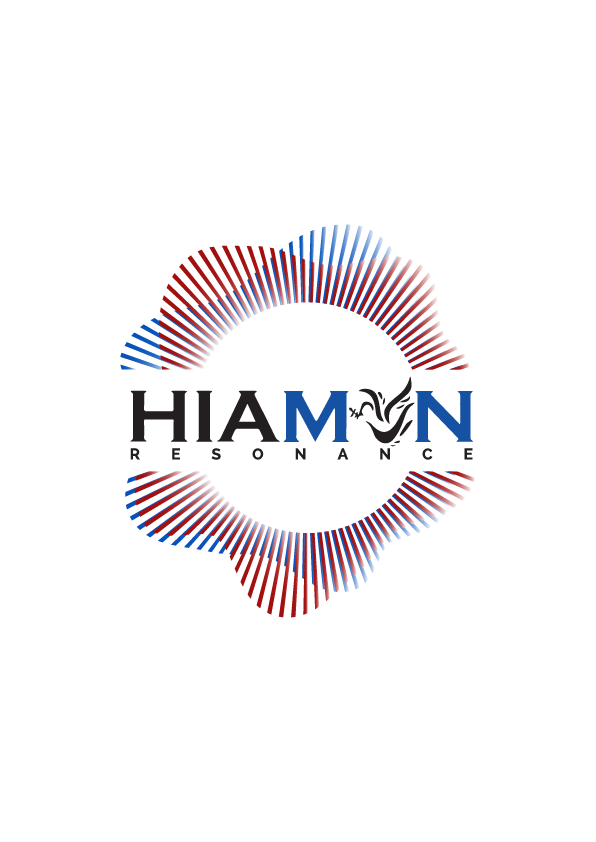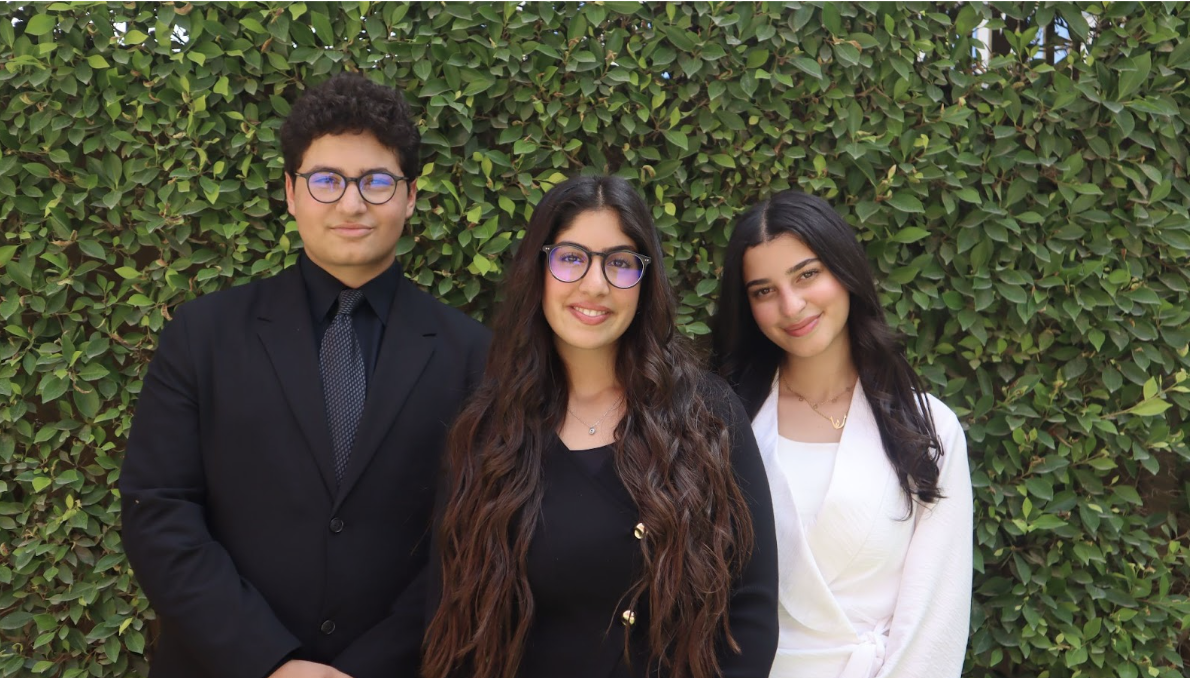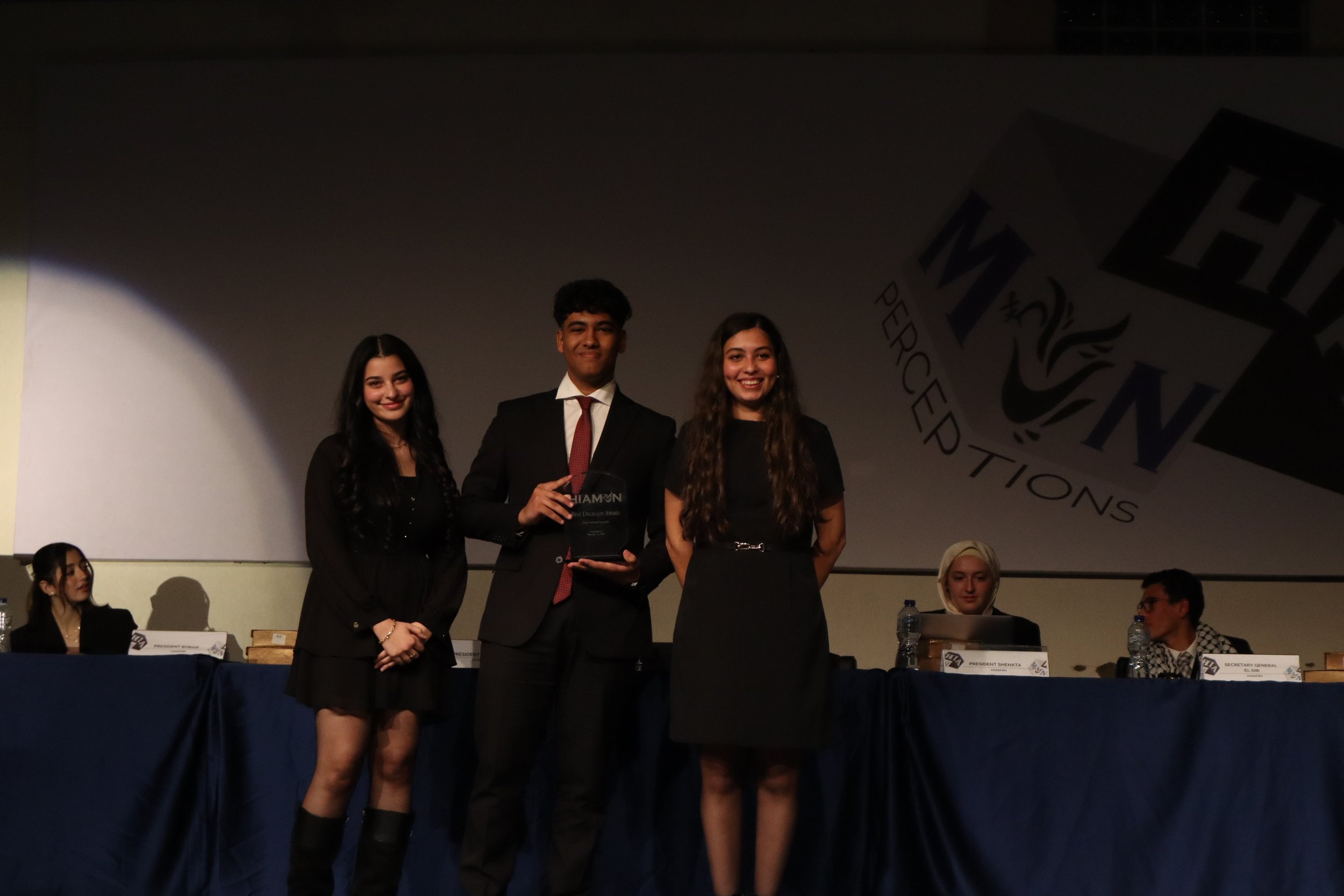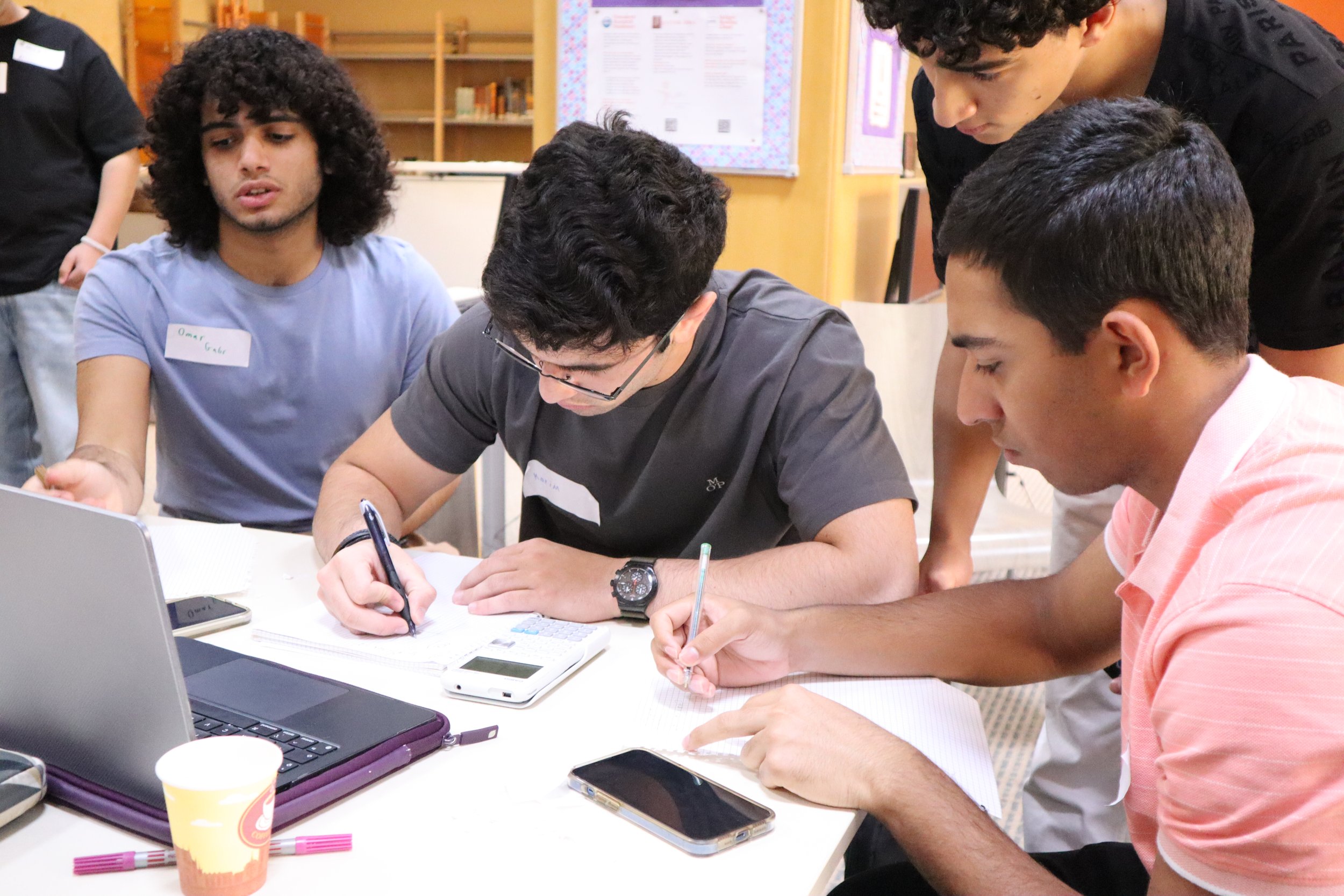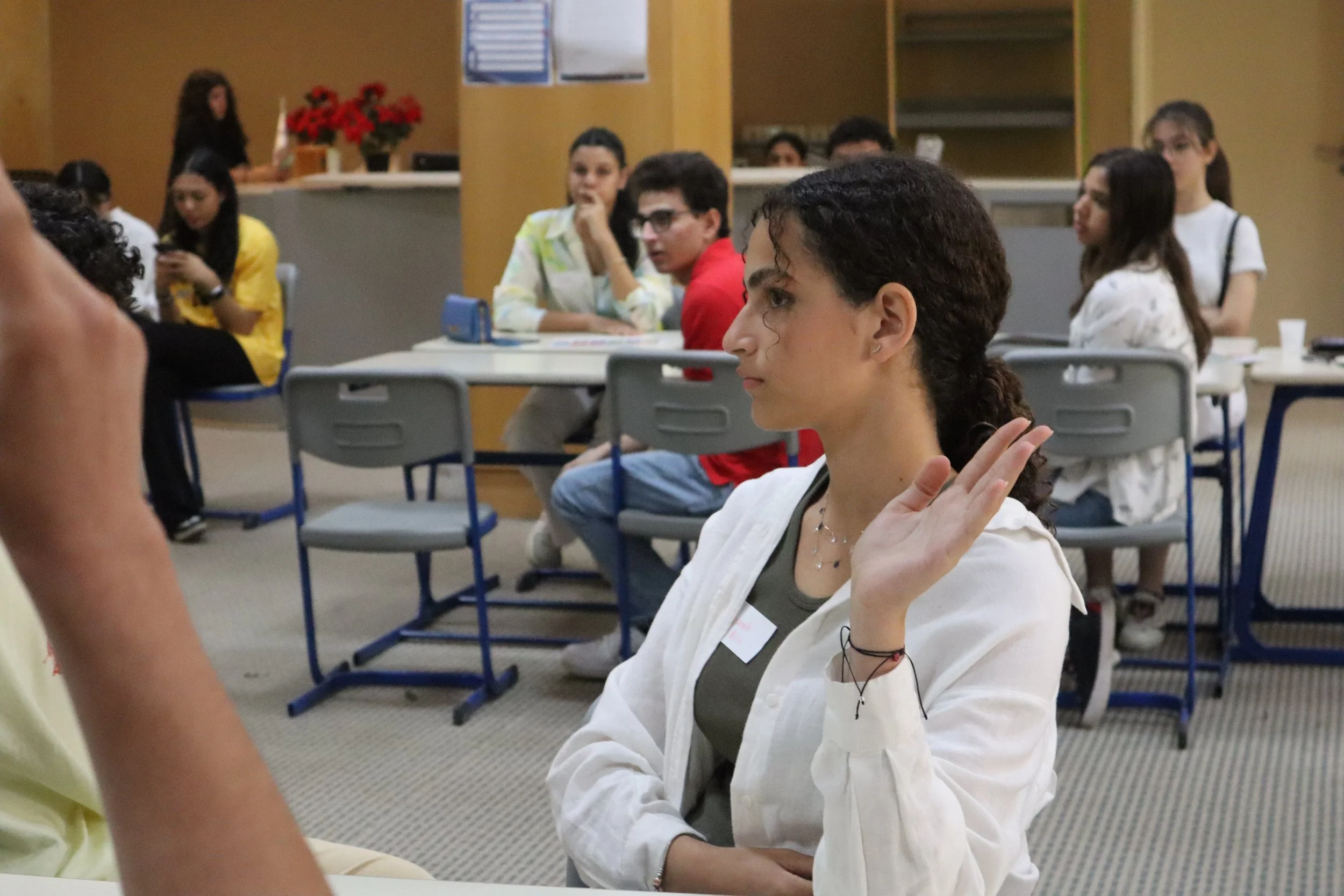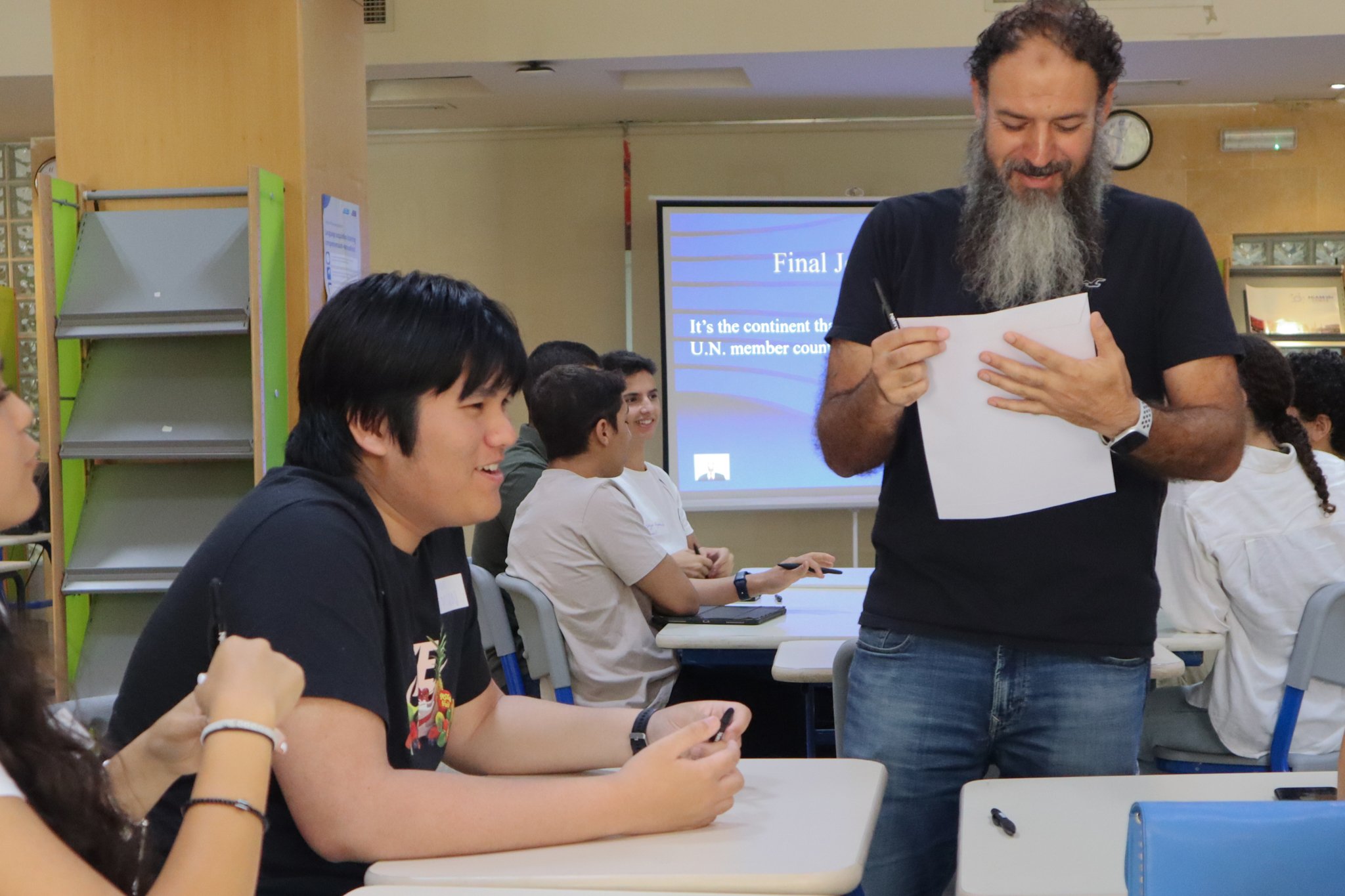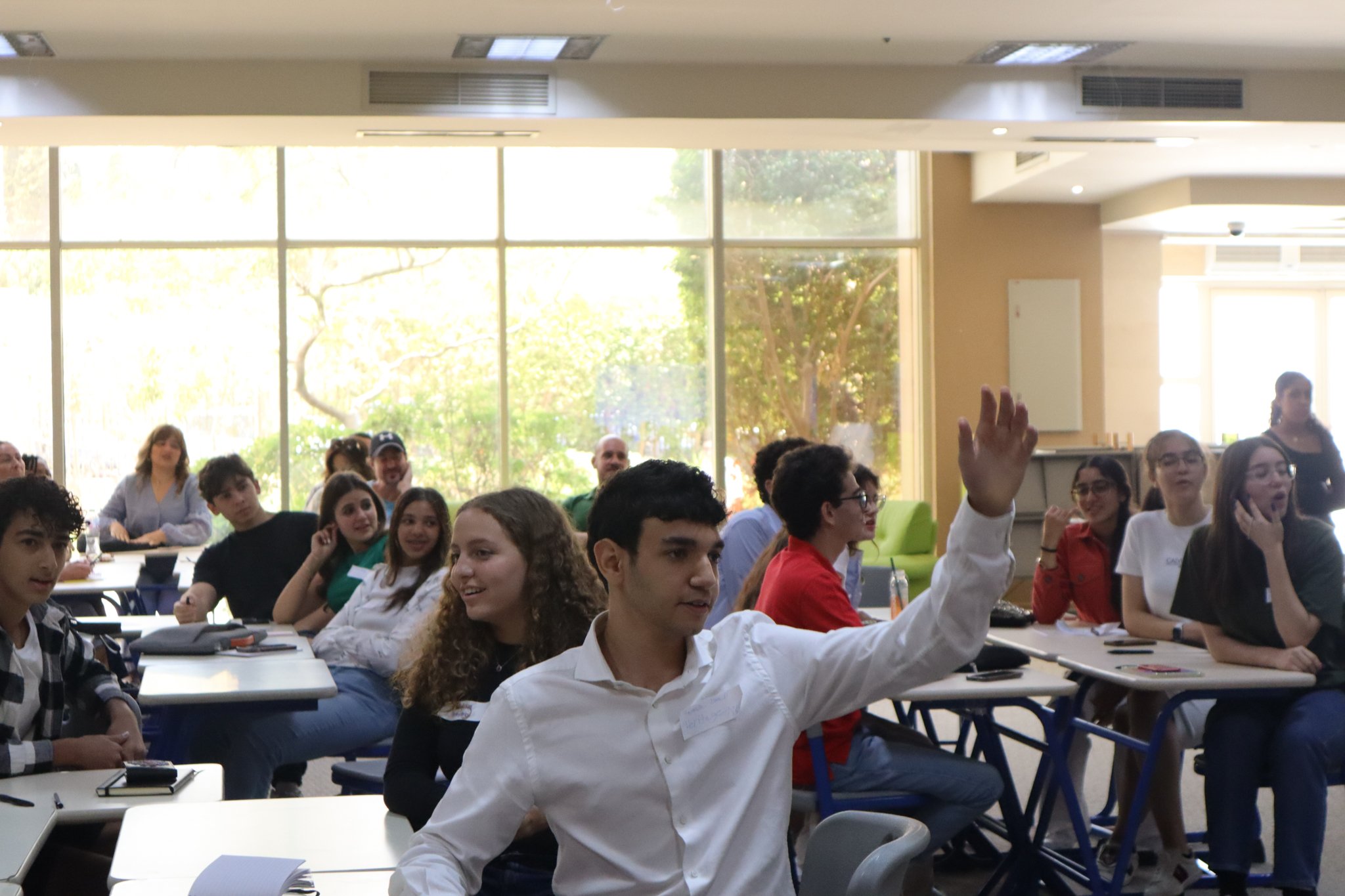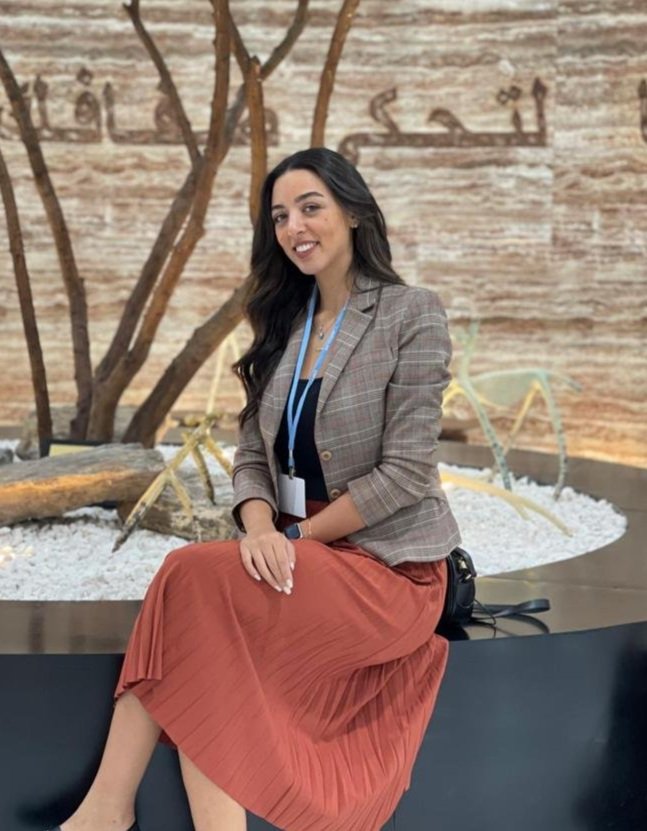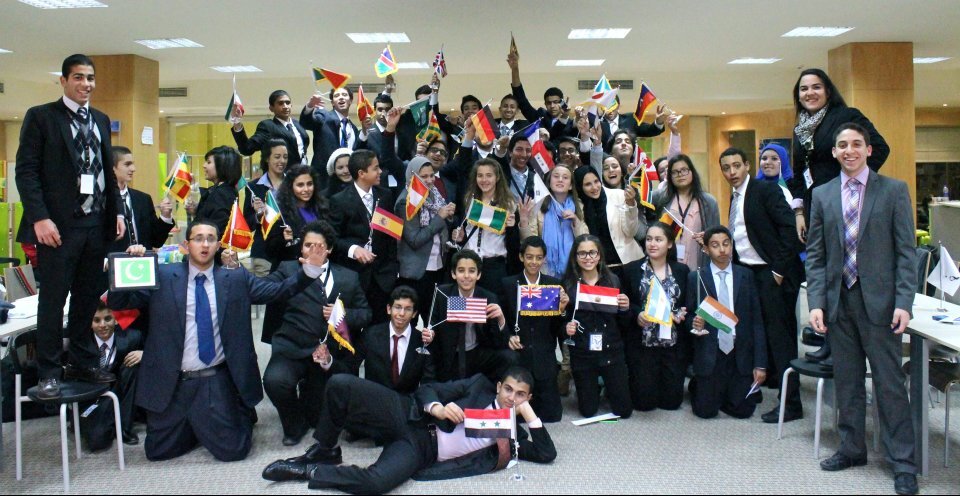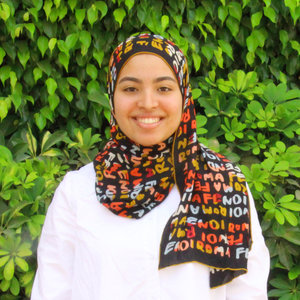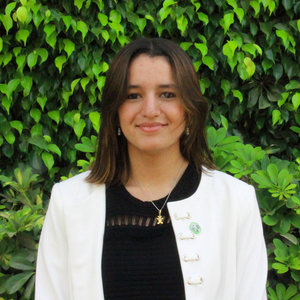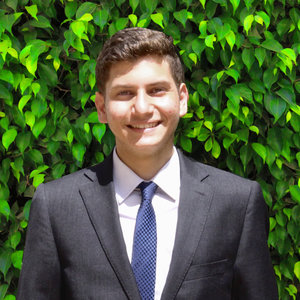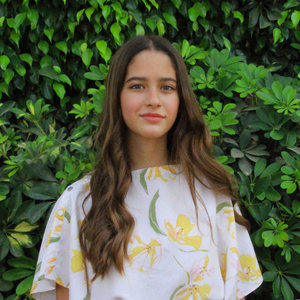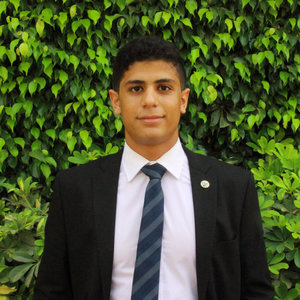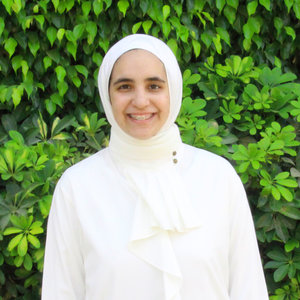For HIAMUN’s 16th annual conference, the Academic and Organizing Committees chose the theme Resonance. In physics, resonance is when frequencies align and amplify one another, producing a stronger effect. In sound, the quality is a sound of being deep, full, and reverberating. Both show the idea of voices growing stronger when united.
To understand why this theme was chosen, we interviewed HIAMUN’26’s executive team: Secretary-General Layla El Sharkawy, Deputy Secretary-General Rana Wessam, and Deputy Secretary-General Karim El Shahawy. Each of them shared how Resonance reflects the vision of this year’s conference.
For Secretary-General El Sharkawy, Resonance directly connects to HIAMUN’s goals. She explained that the theme “relies perfectly with our goals. A constant goal for the United Nations and Model UN conferences such as ourselves is to impact communities, influence change, and resonate with global citizens.”
Layla emphasized that resonance isn’t just about what happens during the conference, but also about what delegates take with them afterward. A speech that inspires others, a resolution that addresses real issues, or even the confidence gained from standing up to speak - all of these are echoes that continue beyond HIAMUN itself.
She also pointed out that resonance represents growth. When delegates contribute their voices, they’re not only shaping debate but also building skills and confidence that stay with them. This shows how HIAMUN’s impact stretches further than the committee rooms - it influences communities, friendships, and even the future paths of its participants.
Deputy Secretary-General Wessam explained the theme in terms of collaboration and unity. She stated, “Simply put, HIAMUN ‘26’s theme, Resonance, revolves around how individual ideas, voices or messages become stronger when aligned with others. To me, this is exactly what HIAMUN represents: it is a channel that not only encourages delegates to come up with their own creative clauses and strong resolutions, but paves the way for building a unified community in which delegates’ ideas string together to become something stronger.”
Rana also stressed that resonance applies to all parts of the conference, not just delegates. She explained, “Resonance not only applies to delegates, but also to our Academic and Organizing Committees. HIAMUN ‘26 will only reach its full impact when the AC and OC both work in harmony, complimenting one another, working to ensure that just as aligned frequencies create amplification, the AC and OC must be aligned in vision and execution to help maintain and improve the quality of our conference.”
Reflecting on her own MUN journey, Rana added, “One of the most important lessons I’ve learned through my years of experience in HIAMUN is the power of collaborating with those around me — where one idea may be weak on its own, combining it with others that compliment and complete it could transform it completely.” To her, Resonance isn’t just about resolutions - it’s also about teamwork, friendships, and the lasting strength that comes from collaboration.
Deputy Secretary-General El Shahawy focused on Resonance as a way of uniting differences. He explained, “MUN in general, and HIAMUN particularly, has always been about turning differences into agreements. While there are many platforms for hashing out disagreements and debating to prove a point, I felt like HIAMUN’s theme should reflect its mission to bring people’s opinions closer together, which I feel resonance does well: the idea that one voice can inspire another, and that when voices combine they make a larger impact than they could alone, is exactly what HIAMUN tries to allow its participants to experience.”
Karim’s perspective shows that Resonance reflects the essence of MUN: transforming debate into understanding, and disagreement into collaboration. His description links directly to HIAMUN’s mission to help delegates find common ground and realize the power of collective action.
From the voices of its executive team, it is clear that Resonance is more than a theme - it is a vision for HIAMUN’26. Layla emphasized how it symbolizes lasting impact, Rana explained its collaborative power, and Karim described its role in uniting differences. Together, their words and reasoning behind Resonance capture why it was chosen for this year’s conference theme.
As Secretary-General El Sharkawy concluded, “We chose this theme as it is the perfect embodiment of our purpose in HIAMUN. We hope to see each and every delegate’s voice resonate in this conference and far beyond.”
Resonance reflects the heart of HIAMUN: ideas, voices, and actions amplified by unity, creating echoes that extend far beyond the committee rooms into the wider world and creating a lasting impact.

